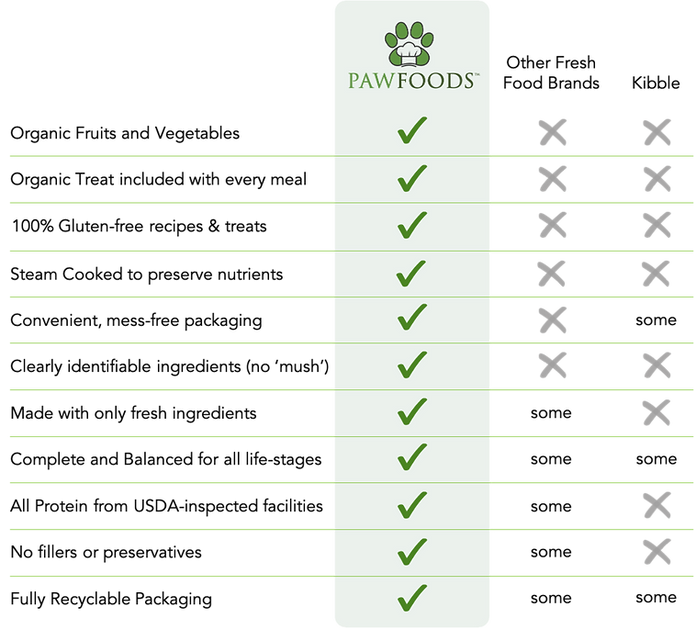
The American Kennel Club recognizes a variety of breeds as "herding", "hunting" and "hunting." These breeds were originally bred to protect livestock and hunt for food. They are now considered one of today's most intelligent dog breeds. They are great watchdogs and have excellent instincts for hunting.
Doberman Pinscher
Recent research indicates that the Doberman Pinscher has the highest intelligence of all dogs. They can respond to commands over 50% of the time. They are smart and watchdogs, making them intelligent. They are loyal, strong, and protective of the family.
A Doberman Pinscher's instinctive IQ is enhanced by socialization. They must learn to recognize the difference between friendly people, and those with malicious intentions. This requires early socialization. Dobermans require a lot more interaction with people and dogs than they do with their Doberman.
Doberman Pinschers are one of most intelligent breeds of dogs and they make excellent candidates for both police and military service. Doberman Pinschers' exceptional intelligence make them a great choice as home guards. In fact, the Doberman Pinscher ranks fifth in intelligence, behind the Border Collie, Golden Retriever, German Shepherd and Golden Retriever. Stanley Coren (canine psychologist) conducted the research.
Labrador Retriever

You may not have known this, but the Labrador Retriever is one of the most intelligent dog breeds. This intelligent dog breed can learn tricks and new behavior from its owners. It can even learn to open gates and doors. It has three types of intelligence: working, instinctive and adaptive. Labradors are available in a variety of colors. However, it is not known which color is more intelligent.
The Labrador Retriever ranks among the top 10 smartest dog breeds, according to the American Kennel Club as well as the Canadian Kennel Club. Labrador Retrievers do not require more than five repetitions of a command to master it, and often obeys the commands within the first attempt. This makes this dog breed great for new dog owners and families with busy schedules. Labradors are also one of the most loyal dog breeds. This makes them ideal for families with young children.
Papillon
The Papillon is a smart and small breed of dog. The Papillon's origins can be traced back to the 14th-century. They are loved for their joy and love. They are agile and highly trained, making them ideal for agility trials. They are small at only 5 pounds but very active and alert. Papillons, despite their small size, are extremely strong and intelligent.
Papillons are one of the most intelligent dog breeds. However, they can be more clumsy due to some limitations. First of all, Papillons are born with a soft spot on their head, which usually closes up like a baby's. This can be fatal if the spot is not completely closed in some rare cases.
Australian Cattle Dog
The Australian Cattle Dog has one of the most intelligent breeds of dog. It's intelligent has enabled it be efficient in herding cattle. This breed is known to be very loyal to its owner. This breed is often called "velcro dog", as it will always be close to you. The Australian Cattle Dog is a herd dog and has a natural tendency to bite. If this tendency is not controlled in puppyhood, it can be dangerous.

Australian Cattle Dogs have a reputation for being highly trained dogs. They are very social and enjoy obedience training. While they can sometimes be stubborn, they do well with positive reinforcement. These dogs are also good candidates for canine sports. They are great farm working dogs that are good at property patrol and herding livestock.
Poodle
Poodles are smarter than any other dog breed. Their emotional intelligence and empathy for humans are what make them so popular. It is because they have been around people for many years. They are able to read and interpret the body language of people. They make great family companions.
According to scientific studies, Poodles rank among the most intelligent dog breeds. They can recall commands easily and have great recall. They are well-known for their gentleness and loyalty. Poodles are smarter than Border Collies, and are often ranked in the top 10.
FAQ
What are the symptoms of a sick dog?
You may notice several symptoms in your dog that could indicate that he is sick. The following symptoms can be seen:
-
Vomiting
-
Diarrhea
-
Lethargy
-
Fever
-
Weight loss
-
A decreased appetite
-
Coughing
-
Difficulty with breathing
-
Bleeding from below the nose
-
Stool or urine contaminated with blood
These are just a few. Your vet will be able to tell you what to watch out for.
What kind of food should I feed my dog?
You should feed your dog a healthy diet.
Some foods that are high in protein include chicken, beef, fish, eggs, and dairy products.
Other foods that contain high amounts of carbohydrates include fruits, vegetables and bread as well as pasta, rice and potatoes.
Lean meats, poultry and fish are all low in fat, as well as nuts, seeds, whole grains and whole grains.
Before giving your dog any new foods, consult your veterinarian.
How to make your pet happy
Pet owners often wonder if they can make their pets happy. Pet owners often buy toys, treats, or clothes for their pets. However, pets might not enjoy certain things. For example, some dogs cannot stand to wear sweaters.
Try to understand why your pet doesn't love it before you buy it. You may find out that your pet enjoys different foods than you. He might even hate shoes.
Another tip is to play with your pet. You can play with a ball, or a frisbee. You can also throw it around in the room. Or, you can throw it up in the air for him to chase. You both will have a lot of fun playing this game. It's enjoyable and relaxing.
A good idea is to give your pet bathe once a week. A bath helps to remove dead skin cells and dirt from your pet's coat. He will also enjoy a nice smelling bath.
Your pet's overall health is also very important. Don't let him eat junk food. Give him high-quality, nutritious food. He should get plenty exercise. You can take him out for a stroll or play fetch.
Spending time with your pet is a great way to bond. Many pets will prefer to spend time with their owners, rather than being left alone.
Finally, love your pet unconditionally. Never yell at him or hit him. Be patient and kind to him. Keep him company.
How much should I pay for a pet?
One good rule of thumb: Budget around $200-$300 per Month.
This can vary depending on where one lives. In New York City, for example, you would probably spend around $350 per month.
In rural areas, however, you might only need to spend $100 per month.
It's important to remember that you should buy quality items such as a collar, leash, toys, etc.
Also, consider purchasing a pet crate. This will keep your pet safe when he is being transported.
How to train a pet?
It is important to be consistent when training your dog or cat. Be consistent in your treatment of them. They will start to distrust you if your behavior is unkind. They might start to believe that everyone is mean.
They will not know what to expect if you're inconsistent with your treatment. This could lead to them becoming anxious around other humans.
Positive reinforcement is the best way to teach your cat or dog. Positive reinforcement will make your pet want to continue doing the same thing.
If they are guilty of a crime, punishing them will be associated with bad behavior and not rewards.
You should use treats such as food or toys to reinforce good behavior. Also, try giving praise whenever possible.
To help your pet learn, clickers are a great tool. Clicking can be described as a technique that allows you to click on a button to inform your pet that he did a good job.
This works because animals can understand that clicking "good job" means "good luck".
Before teaching your pet tricks, first show it the trick. After that, reward him with a treat and ask him to perform it.
When he does it correctly, give him praise. Don't be too proud. Don't praise him more than once.
Also, it's important to set boundaries. For example, don't allow your pet to jump up on guests. Or don't allow him to bite strangers.
Remember always to supervise your pet so that he doesn't hurt himself.
How long should a dog remain indoors?
Dogs are naturally curious creatures. They need to have an outlet for this curiosity. They may be destructive if they don’t have any outlets. This can lead to many problems, including the destruction of property and injury to people.
Outside, it is important to keep your dog on a leash. Dogs should be kept on a leash when they are outside to prevent them from getting into trouble and allow them to explore the environment safely.
Dogs will get bored and restless if they are kept inside for too long. He will begin to chew furniture and other things. His nails will grow too long, and he could develop health issues as well.
You can prevent your dog from getting hurt by letting him run wild at least once a day. Take your dog out for a run around the block, to the car, or to the park.
This will give him something to do and help him burn some energy.
Statistics
- * Monthly costs are for a 1-year-old female mixed-breed dog and a male domestic shorthair cat less than a year old, respectively, in excellent health residing in Texas, with a $500 annual deductible, $5,000 annual benefit limit, and 90% reimbursement rate. (usnews.com)
- Reimbursement rates vary by insurer, but common rates range from 60% to 100% of your veterinary bill. (usnews.com)
- A 5% affiliation discount may apply to individuals who belong to select military, law enforcement, and service animal training organizations that have a relationship with Nationwide. (usnews.com)
- Here's a sobering reality: when you add up vaccinations, health exams, heartworm medications, litter, collars and leashes, food, and grooming, you can expect a bill of at least $1,000 a year, according to SSPCA. (bustle.com)
- In fact, according to ASPCA, first-year expenses can sum up to nearly $2,000. (petplay.com)
External Links
How To
How to train a cat for a pet
Before you can train your cat, it is important to understand the nature of your pet. Cats have very complex brains. Cats are intelligent, emotional creatures. If you want to make sure that your cat behaves well, then you must take into consideration his/her personality. You have to learn how to take care of your cat.
It is important to remember that cats are independent beings. They do not like being told "no". You may be angry if they tell you "no". This is why you should never hit your cat when he/she does something wrong. It is important to show affection and love to your cat but you shouldn't treat them like a human being.
If your cat is having trouble, you can try to help them. Try to talk to him/her calmly and gently. You should not yell at them/her. You can make him/her feel worse by shouting at you. Your cat cannot be forced to eat. He/She loves food, but sometimes he/she just refuses to eat. It is a good idea to treat your pet when this happens. But don't give too many treats because this could lead to overeating.
It is important to keep your cat clean. You should wash your cat every day. Use a moist cloth to remove dirt and dust. Fleas should be removed from your cat's skin. Flea bites may cause skin irritation or allergies. Flea bites can be painful and should be treated with a shampoo.
Cats are social animals. Cats enjoy being with other people. That is why you should spend quality time with your cat. Play with your cat and feed, bathe, and cuddle it. These activities will make your cat happy.
You should begin training your cat as soon as possible. Your kitten should be trained by you as soon as he/she turns two weeks old. Three months is the best time to start training your cat. By this age your cat is fully grown and ready for new adventures.
Your cat should be taught tricks step-by-step. If you want to teach your cat to sit down, then show it/him the chair. Then, reward your cat by giving him/her a treat. Repeat these steps until your cat understands what you mean.
Remember that cats are intelligent. Cats are smart and can figure out how to do tasks. They do require patience and perseverance. Do not expect your cat will be able to master any task in a flash. Allow your cat to practice many times before giving up.
Never forget that cats are wild animals. Cats are curious and playful by nature. If your cat runs free, it's possible for him/her to accidentally knock objects over. To prevent accidents, place your cat in a secure area that won't cause injury to him/herself.